SUMMARY
This is AI generated summarization, which may have errors. For context, always refer to the full article.
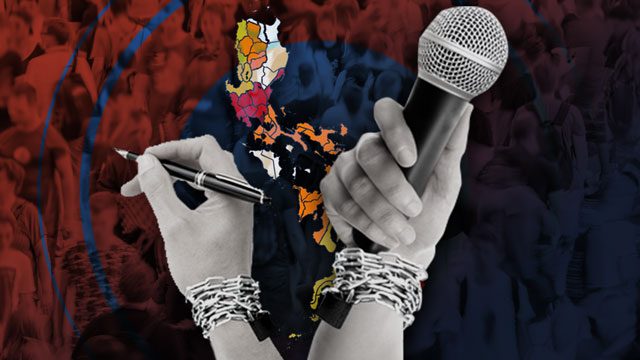
MANILA, Philippines – Press freedom in the Philippines further suffered a hit during the coronavirus pandemic, with more restrictive measures against media entities through intimidation, surveillance, and other tactics, a report said. This comes alongside the tagging of reporters and activists critical of the government as members of the communist New People’s Army (NPA).
The May 3 “State of Media Freedom in PH” report from the Freedom for Media, Freedom for All (FMFA) Network, composed of the Center for Media Freedom and Responsibility (CMFR), National Union of Journalists of the Philippines (NUJP), MindaNews, Philippine Press Institute (PPI), and Philippine Center for Investigative Journalism (PCIJ), outlined the struggles faced by the media, made worse by the government’s use of the coronavirus pandemic to restrict press freedom and free speech.
More restrictions
The report described how the Duterte administration has added legal restrictions to reporting and free speech as it addressed the pandemic. (READ: Philippines slips 2 places in World Press Freedom Index)
One of the steps was to add bureaucracy to the proceedings of free movement of the press in the middle of the pandemic by requiring reporters to secure identification that would allow them to pass through security checkpoints.
“Such physical limitations do not exist for journalists reporting COVID-related news,” the report said. “Government accreditation is generally understood by the Philippine press as a limitation to freedom, access to sources, and the people’s right to know (Philippine Constitution’s Bill of Rights sections 4 and 7).”
Additionally, responses to Freedom of Information requests were delayed during the pandemic.
Weaponizing ‘fake news’ law
On March 23, the Duterte administration enacted the “Bayanihan to Heal as One Act,” which provided the president with a number of ways to deal with the coronavirus situation but also had a provision penalizing “fake news.” (DOCUMENT: Duterte’s 30 special powers to deal with the coronavirus outbreak)
The provision, the report said, “clearly opens up opportunities for any officer, with little understanding of the Constitutional provision, to determine report or social media post to be ‘fake news.'” It also opens people up to complaints from officials who feel slighted by criticism from the public.
In the span of about one month, some 60 individuals were charged by government officials based on this provision. (READ: Cebu film writer arrested over Facebook post about coronavirus in Sitio Zapatera)
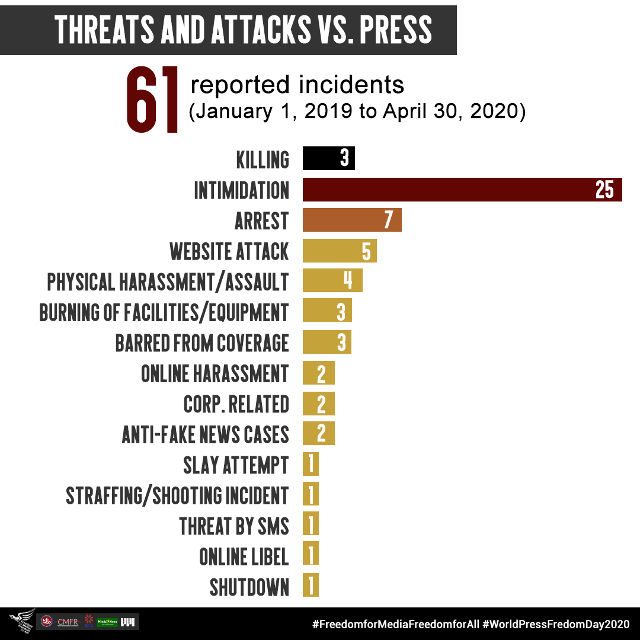
Threats against the press
“From January 1, 2019 to April 30, 2020, CMFR and NUJP documented 61 reported incidents of threats and attacks against the press, including 3 journalists who were killed,” the report said, with 30 of the 61 incidents allegedly done by state agents.
At least 14 were said to have been done by national government officials in the executive branch, the Senate and the House of Representatives; 11 by the police; 3 by local government; and two by the military.
ABS-CBN’s legal troubles
Perhaps the largest attack during this period was that of the threat to the franchise renewal of ABS-CBN. The bill to renew ABS-CBN’s franchise was done in the 18th Congress on July 1, 2019.
The franchise expires on May 4, a day after World Press Freedom Day. (READ: Calida warns NTC against granting provisional authority to ABS-CBN)
Red-tagging and soft power against the press
Among the other tactics done to stifle the press was the use of red-tagging and exertion of soft power.
In red tagging, individuals are publicly linked to the Communist Party of the Philippines (CPP), the New People’s Army (NPA) or the National Democratic Front (NDF). Some of those red-tagged individuals are accused of being part of “front organizations” for the CPP-NPA-NDF, or are thus subjected to trumped-up charges. (READ: Altermidya correspondent, 4 human rights leaders arrested in Tacloban) https://www.rappler.com/nation/251243-arrest-altermidya-correspondent-human-rights-leaders-tacloban
As the report explained, “The National Intelligence Coordinating Agency (NICA) has been holding forums for members of the community media in regions where journalists are ‘compelled’ to sign off to a ‘Manifesto of Commitment’ declaring their ‘wholehearted support and commitment to the implementation of President Rodrigo R. Duterte’s Executive Order No. 70 to the Regional Task Force To End Local Communist Armed Conflict.’
Declining, the report said, could have been seen as going against the Task Force’s supposed goal of ending the “communist armed conflict.”
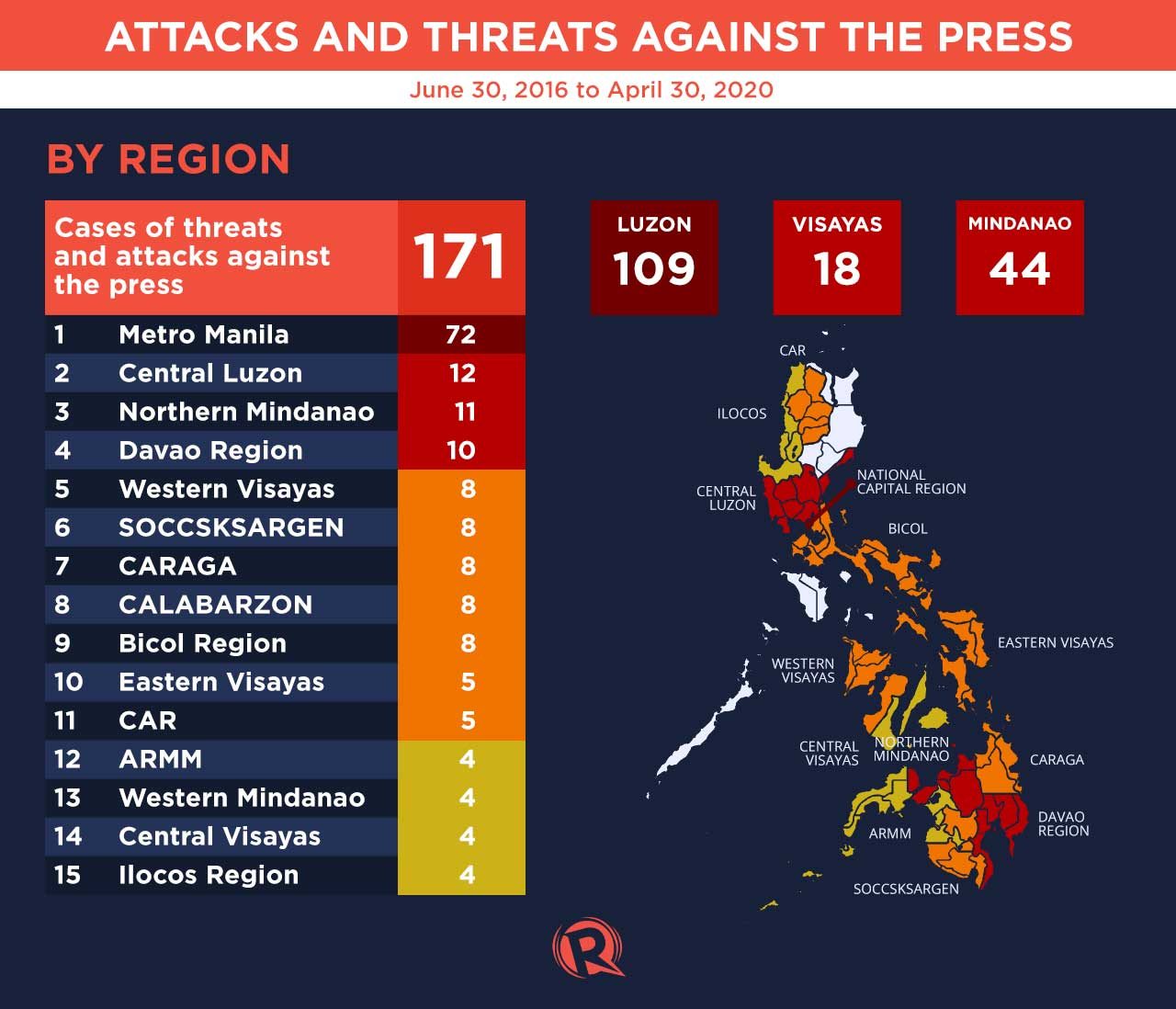
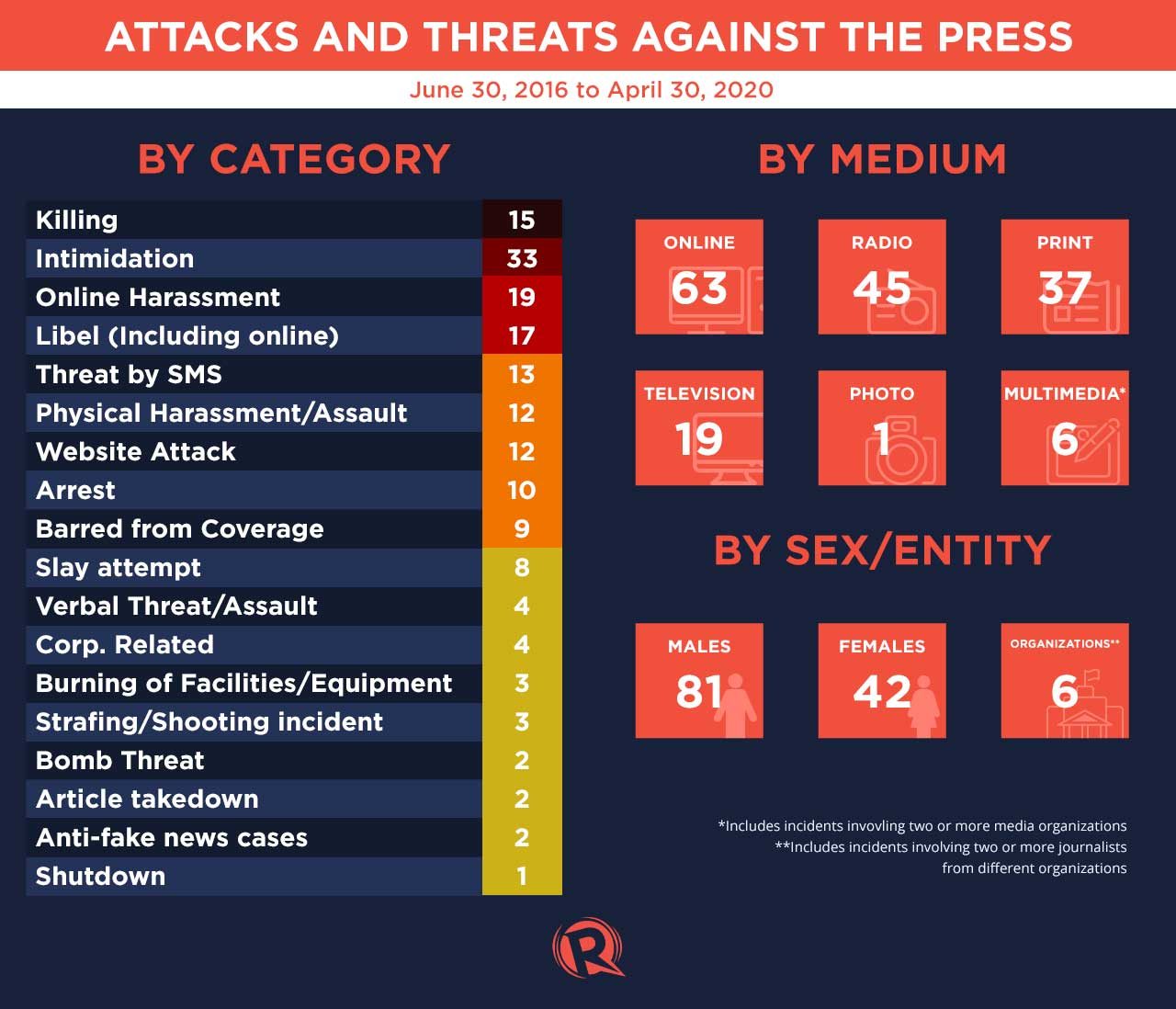
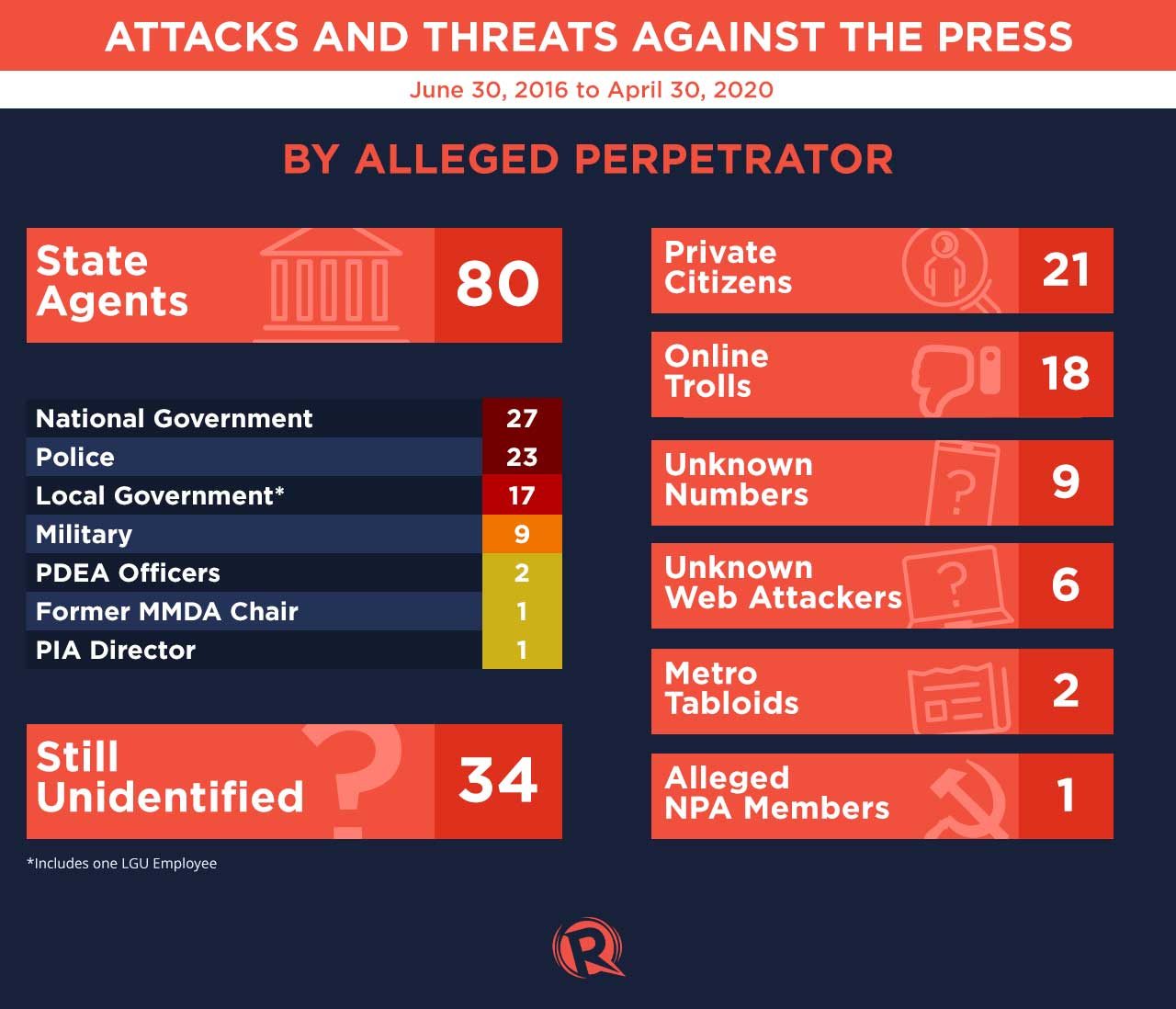
A full version of the report can be found here. – Rappler.com
Add a comment
How does this make you feel?
There are no comments yet. Add your comment to start the conversation.